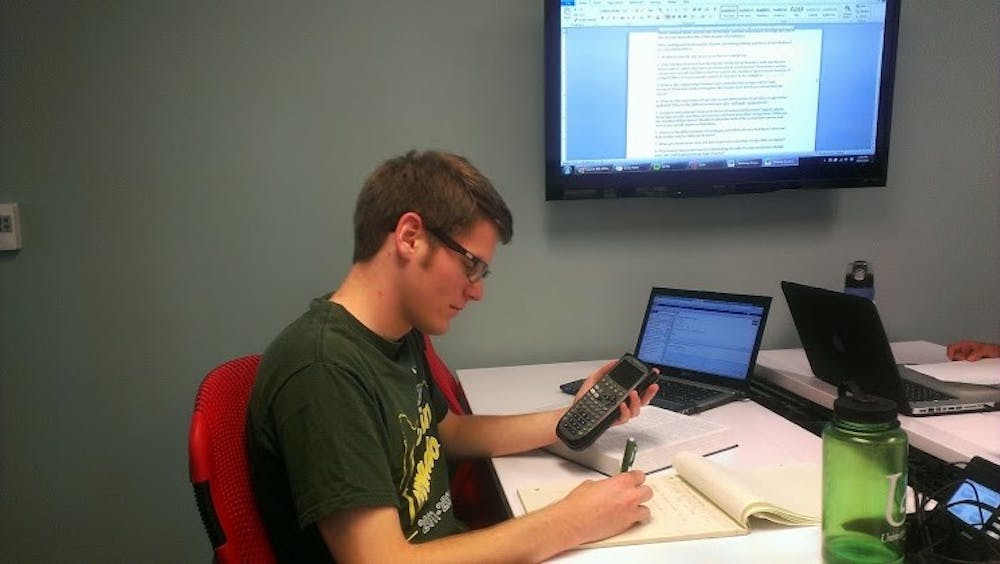By Lydia Laythe |
Starting this year, the Donald P. Shiley School of Engineering will transition toward a new curriculum to give students more flexibility and make it easier for them to pursue other fields of study. The School is changing its curriculum in three major ways: opening up electives in non-engineering fields, rearranging the capstone course and creating a common first-year engineering experience.
Sharon Jones, dean of the School of Engineering, said flexibility was the main goal of making changes.
“We wanted to provide more flexibility for the engineering students to take other courses that would further their professional interests, but weren’t necessarily courses in their exact major,” Jones said.
Prior to the changes, students in the School of Engineering were tightly bound to the course requirements for their major, preventing them from pursuing many electives in other fields. Jones said the changes in requirements will allow students to focus more on their professional goals by allowing them to take electives in other disciplines to create a more specific skill-set.
For example, a mechanical engineering major interested in biomechanical engineering could take extra biology classes to specify their focus.
“We wanted to free up a little flexibility so the students could do a little customization,” Jones said. “So the students have an opportunity to take part in other wonderful programs that the University has that they weren’t able to before.”
Sophomore Max Robinson, a computer science major, said he preferred the stricter curriculum.
“I like the rigid structure, because they tell me ‘You’re taking these classes,’” Robinson said. “It keeps me more focused. And fewer choices make it easier when it comes to Registration time.”
Most students won’t have to adjust much to the new changes. Freshmen entering the engineering program will be immediately under the new curriculum, and upperclassmen will finish their track without much change. Sophomores may be the only ones to experience much change, as some of the course changes may affect the classes they’re taking this year. The biggest change that affects current students is the consolidation of several courses. Where previous students would’ve taken two sections of a class on a certain topic, now students will only take one section.
Junior Nicolas Boesé, a mechanical engineering major, said he would’ve explored an additional minor or major had the curriculum allowed when he was a freshman.
“At this point, I don’t have many options for getting a minor,” Boesé said. “But had the program been in place before, it definitely would’ve been a factor that would’ve edged me toward getting another major.”
Students in the School of Engineering are required to do a capstone project their senior year, which is a group project to demonstrate the culmination of all their studies. Now, students will be required to take a class their junior year that prepares them for the dynamic and challenges of the capstone project. The new course will teach students ethics, leadership and presentation skills.
Junior Mike Hector, a mechanical engineering major, said the capstone course change is helpful for students who are unsure of their focus.
“I think it’s a good idea,” Hector said. “The sooner you can get started on the senior project, the better.”
Boesé said the course will be helpful in preparing for his capstone.
“It’s giving us a chance to practice the sorts of skills we’ll need in our capstones before we actually have to use them,” Boesé said. “It’ll be nice to have a course that’s specifically designed to provide us with the sort of support, feedback, references, tools that will hopefully help us be better at executing what we need to – and eventually land us a job.”
Prior to the changes, freshmen were required to select their focus (mechanical, civil, electrical or computer science) by the spring semester of their first year. Jones said that wasn’t enough time to learn what each focus was about. A new scheduling system will fix first-year courses so that each freshman takes the same set of courses.
This common first-year schedule allows students to learn about each focus before they choose one and pushes the deadline for choosing a focus to the fall semester of their sophomore year. Jones said the changes will allow students to make informed decisions about what area of engineering they want to pursue.
Boesé said he feels confident in the School of Engineering changes.
“I trust the judgment of our deans,” Boesé said. “If they’re making this change, it’s for the better.”








